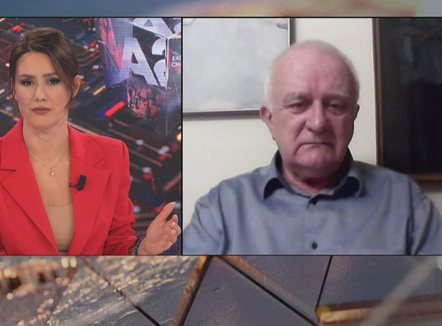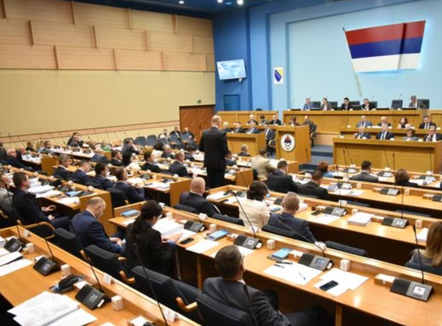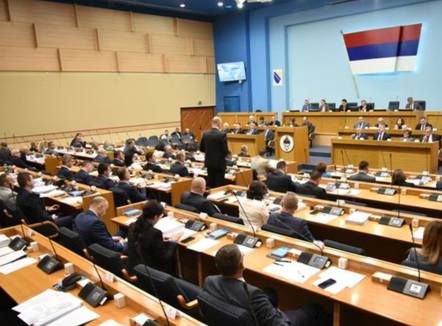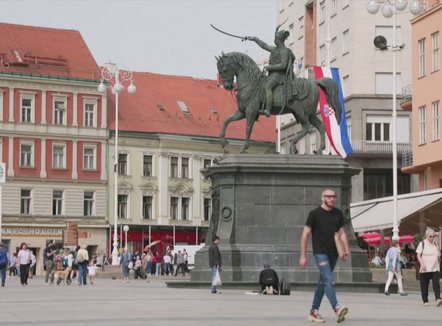Bosnia and Herzegovina has entered a dangerous political spiral. Partner countries have raised the alarm. This is after the Parliament of Republika Srbska has ordered the Serbian representatives in the state institutions to block the decision-making and legal changes which are necessary for the integration of the country in the EU.
A dangerous precedent is taking place in the Republika Srpska of Bosnia and Herzegovina. Lawmakers in the regional parliament of Republika Srpska ordered Serbian representatives in state institutions to block decision-making and legal changes necessary for the Balkan country's integration into the European Union. The regional parliament announced the move in an emergency session called to discuss the response to the trial of leader Milorad Dodik, a Serb separatist who is being prosecuted in Bosnia's state court for defying the rulings of international peace envoy Christian Schmidt. Dodik, a Serbian separatist leader, is on trial for defying decisions by the international High Representative who oversees peace in the country under the 1995 Dayton Accords, which ended the 3-1/2-year ethnic war.
The MPs said the trial was "politically rigged", based on the "illegal decisions" of current envoy Christian Schmidt and the court and state prosecutor's office, which they consider unconstitutional because they were created by the peace envoy and not by the Dayton Treaty. The pro-Russian Dodik has tried hard to separate his Serb-dominated region from Bosnia in recent years, but stopped the process after the start of the war in Ukraine. Under the Dayton Treaty, Bosnia was divided into two autonomous regions, Republika Srpska and a Federation dominated by Croats and Bosniaks, linked by a weak central government. This ensured peace, but left Bosnia dysfunctional as a state.
The EU delegation to Bosnia and Herzegovina, together with the embassies of the United States, the United Kingdom, France, Germany and Italy, condemned the acts of the Serbian parliament as "a serious threat to the country's constitutional order". "At a time when the official opening of EU accession negotiations has never been so close, a return to political deadlock would have negative consequences for all citizens... most of whom support EU accession," the statement said. . (A2 Televizion)











